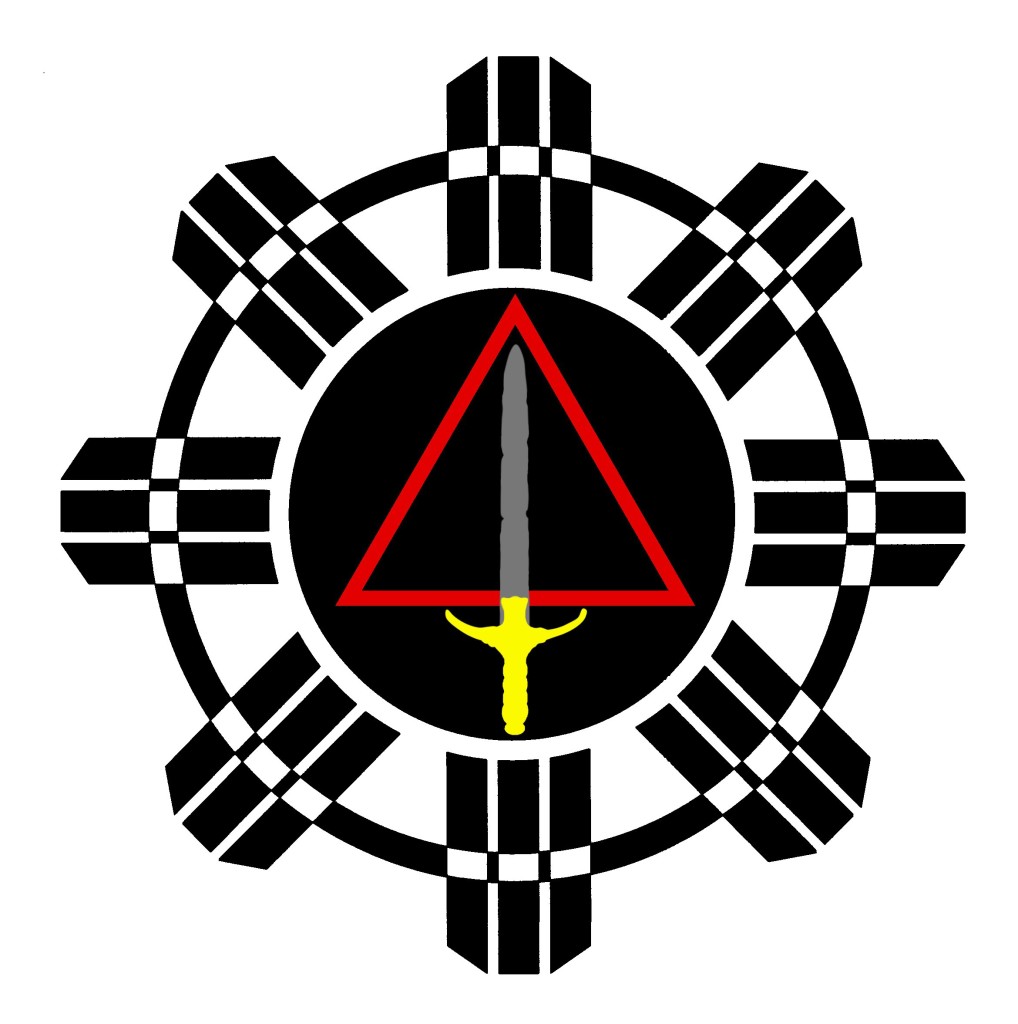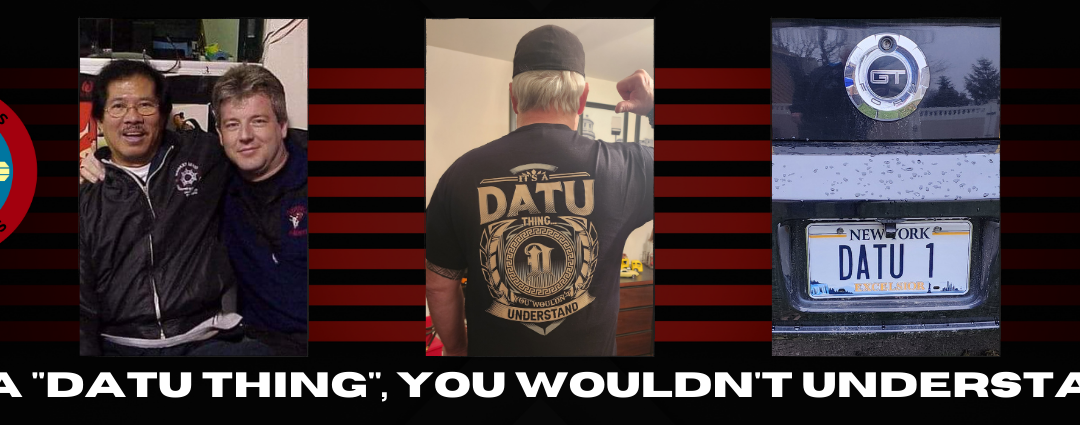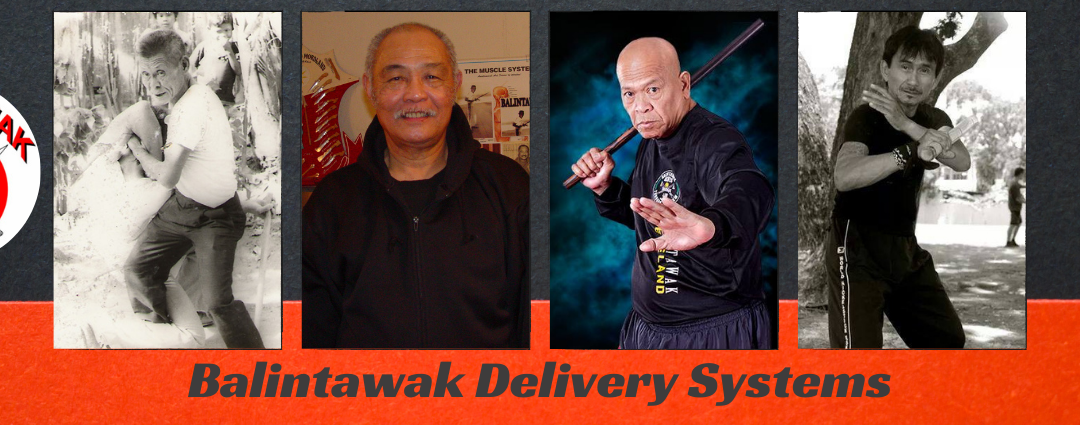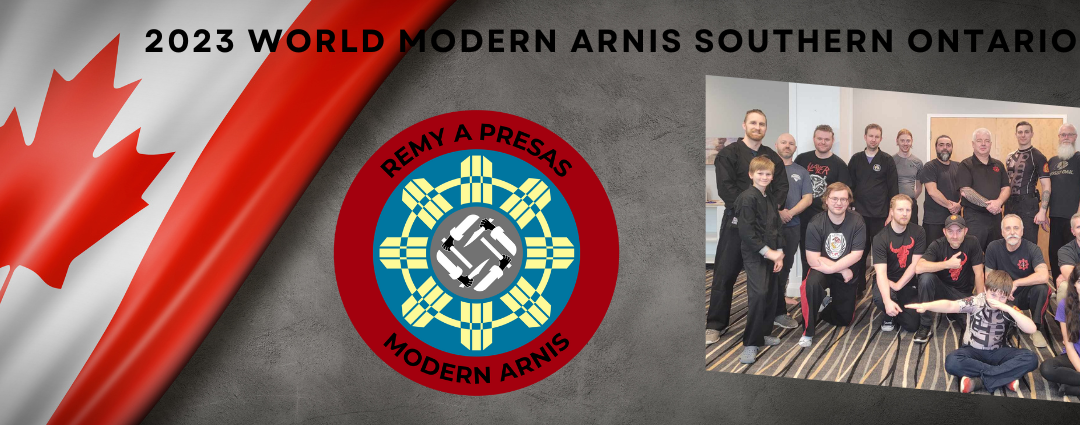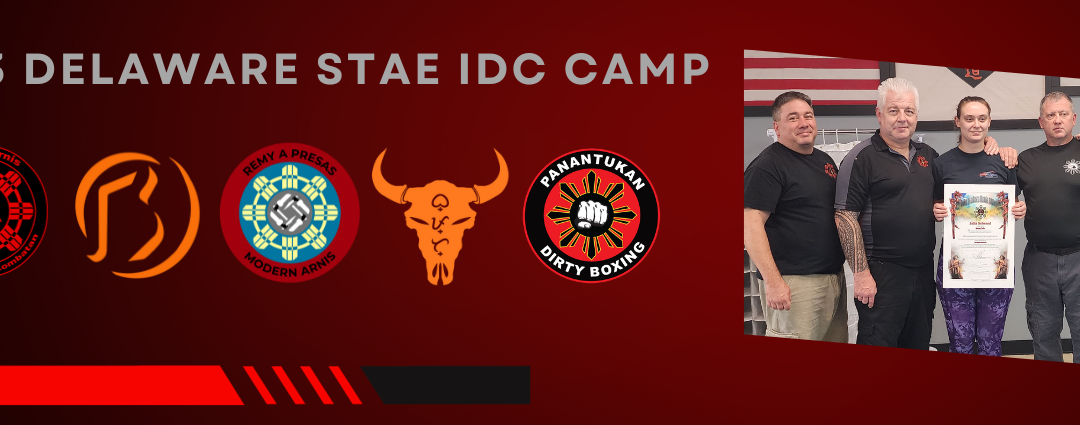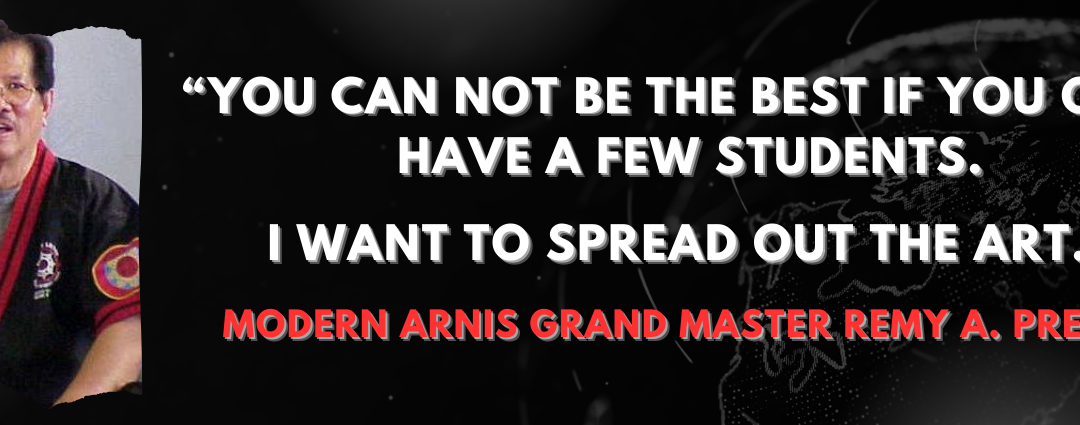
Being the Best!

The esteemed Professor Remy A. Presas once stated, “You can not be the best if you only have a few students. I want to spread out the art.” This perspective clearly illustrates why he was unparalleled in his field. His global travels, engaging with tens of thousands, enriched him with diverse energies and insights, fundamentally shaping his martial artistry. Such extensive, hands-on experience is vital to reaching his level of mastery. His primary motivation in spreading his art was not personal glory, fame, or financial gain, but a commitment to the future generations of martial artists.
I attribute my own development as a martial artist to my teacher’s dedication and the breadth of his life experiences, which greatly influenced the evolution of his martial arts. There are certain experiences unique to his journey, shaped by survival in harsh environments and life-threatening situations, that are irreplaceable and, in some cases, should not be replicated.
Professor Presas was a trailblazer, laying a strong foundation for future generations. While I recognize that in some aspects I may never match his achievements, in others, I have already exceeded them. We have established significant milestones such as a dedicated headquarters, a structured curriculum accessible globally, and a well-organized association, all contributing to the art’s legacy.
Each generation bears the responsibility of elevating the art to new heights. My pursuit of excellence involves engaging with as many practitioners as possible. While small training groups have their merits, to truly advance the art and prepare it for future generations, extensive interaction and a broad base of practitioners are essential. This approach ensures the art’s resilience and adaptability.
I invite your thoughts on this perspective.
Respectfully,
Datu Tim Hartman.
For the full interview for Prof Presas’ quote follow this link:
https://wmarnis.com/the-w-m-a-a/grandmaster-profiles/46-2/
